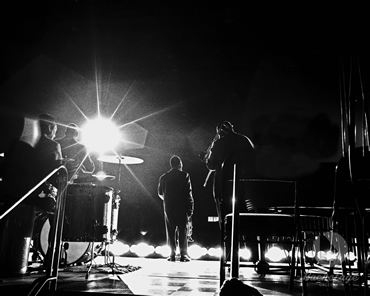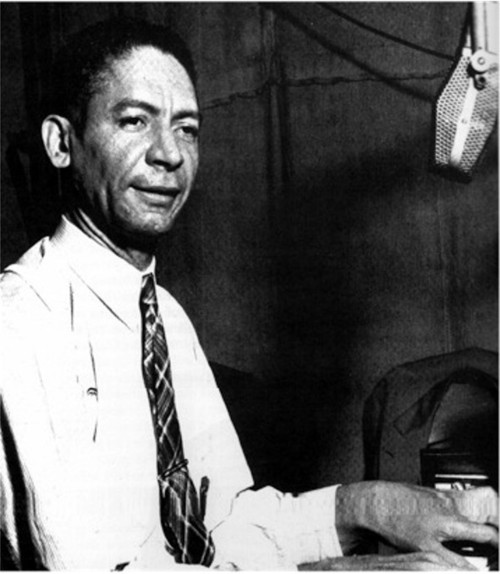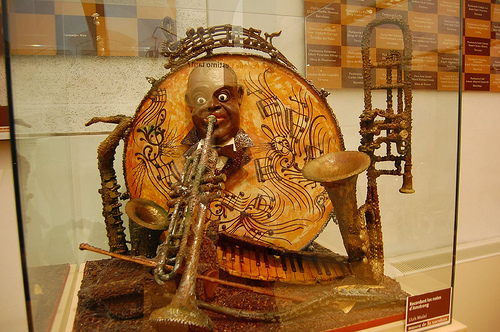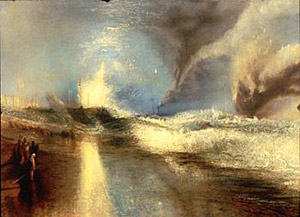 Pops: A Life of Louis Armstrong, which comes out in December, is about to go to the printer. This means that I still have a few more days in which to make changes in the text–though not large or frivolous ones. The Unwritten Law of Last-Minute Fixes is that they should only be made to correct actual factual errors, so I’ve been rereading Pops with a gimlet eye to see if anything slipped past me.
Pops: A Life of Louis Armstrong, which comes out in December, is about to go to the printer. This means that I still have a few more days in which to make changes in the text–though not large or frivolous ones. The Unwritten Law of Last-Minute Fixes is that they should only be made to correct actual factual errors, so I’ve been rereading Pops with a gimlet eye to see if anything slipped past me.
On Friday I made three one-word fixes:
• In the prologue, I made a change in this sentence:
Armstrong was deserted by his father before he was born, raised by a part-time prostitute, and sentenced at the age of eleven to the Colored Waif’s Home, an orphanage-like reform school, for firing a pistol on New Year’s Eve.
I changed before to when.
Elsewhere in the book, I quote Armstrong as saying that his father “left us the day we were born.” I don’t know how this inconsistency escaped the attention of the half-dozen people who’ve read the manuscript of Pops, but I finally spotted it last week and fixed it at once.
• In the second chapter, I made a change in this sentence:
Born in 1885, Oliver [Joe “King” Oliver, Armstrong’s mentor] was a dark-skinned butler turned musician who got his start playing in brass bands.
I changed butler to yardman.
The various Oliver-related sources that I consulted disagreed on this point, but late last week I tracked down a definitive primary source, a 1959 oral-history interview with Oliver’s wife that was cited in an end note to Bruce Boyd Raeburn’s New Orleans Style and the Writing of American Jazz History, published earlier this year. According to Stella Oliver, her husband worked as a “yard boy,” not as a butler. I shouted with joy when I ran across that note while re-reading Raeburn’s book.
• In the ninth chapter, I made a change in this sentence:
After the publication of Jazzmen, which Armstrong called “absolutely perfect” in a letter to one of the book’s contributors, the revival of interest in New Orleans jazz took wing.
I changed after to with because of the next sentence in Pops: “It came too late to help Oliver, but [Jelly Roll] Morton, who had been unceremoniously dropped from Victor’s roster of artists in 1930, was now invited back to record ‘High Society,’ ‘I Thought I Heard Buddy Bolden Say,’ and ‘Oh, Didn’t He Ramble’ with an all-star band whose members included Sidney Bechet and Zutty Singleton.”
 Once again, it was New Orleans Style and the Writing of American Jazz History that set me straight. Raeburn quoted a remark made by Frederic Ramsey, one of the co-authors of Jazzmen, at a 1982 symposium about Jelly Roll Morton:
Once again, it was New Orleans Style and the Writing of American Jazz History that set me straight. Raeburn quoted a remark made by Frederic Ramsey, one of the co-authors of Jazzmen, at a 1982 symposium about Jelly Roll Morton:
We had a book that was about to come out in October, that was the one called Jazzmen, and so we whipped up this deal by going to RCA Victor, and on the strength of a book coming out we could have Jelly Roll Morton’s New Orleans Jazzmen make a sessions [sic] or two.
The first of the two recording sessions took place on September 14, 1939, shortly before Jazzmen was published. Until I re-read Raeburn’s book, I hadn’t realized that Morton’s Victor sessions were arranged prior to the publication of Jazzmen, so I changed after to with in the interests of chronological clarity and exactitude.
Small stuff? Sure–but the Armstrong literature, including every previous biography, is so full of errors, some small and others dismayingly large, that I felt obliged to try and get everything right. Needless to say, I’m sure that I’ve made some blunders of my own, but I managed to correct so many other long-standing mistakes in the course of researching, writing, and editing Pops that I feel confident in saying that it will be the most factually accurate account of Louis Armstrong’s life ever to have seen print.
In saying this, I know I’m leading with my chin. Jazz scholars will soon be circling Pops like buzzards, looking for fresh carrion. Just the other day I got an e-mail from an Armstrong researcher in Germany who had somehow obtained a set of uncorrected page proofs of Pops. He told me that the book was “fantastic” but added that I’d gotten the title of one of Armstrong’s best-known albums wrong. I promptly fired off an e-mail to Larry Cooper, Houghton Mifflin Harcourt’s copy chief in Boston, asking him to make the fix on the double. Larry wrote back the next day to reassure me that I’d already caught the error myself and fixed it in galleys a couple of months ago. Rarely have I felt such relief!
Forgive my obsessiveness, but now that The Letter is out of the way and Pops has received its first pre-publication review, I’ve traded one set of jitters for another. When you’re writing about a great man, you can’t help but feel as though he’s looking over your shoulder. Insofar as I can, I want to do justice to Louis Armstrong–and that means, among countless other things, getting the small stuff right.


 I’m still too tired from my
I’m still too tired from my  I also took a brisk stroll through the Clark’s permanent collection, which I find pleasing but not especially exciting, though it contains one show-stopper, Turner’s “Rockets and Blue Lights (Close at Hand) to Warn Steamboats of Shoal Water.” This is a painting worth seeing as often as possible, and since I generally make it up to Williamstown once a year, that’s about how often I see it. The older I get, the more intensely Turner delights me, which undoubtedly says more about me than it does about him.
I also took a brisk stroll through the Clark’s permanent collection, which I find pleasing but not especially exciting, though it contains one show-stopper, Turner’s “Rockets and Blue Lights (Close at Hand) to Warn Steamboats of Shoal Water.” This is a painting worth seeing as often as possible, and since I generally make it up to Williamstown once a year, that’s about how often I see it. The older I get, the more intensely Turner delights me, which undoubtedly says more about me than it does about him. I also got my first look at “Sleigh Ride,” a well-known painting by Winslow Homer that for some reason had previously escaped my attention. I can’t think why–it has an arrestingly modern quality of the kind that rarely fails to catch my eye. All I can tell you is that it leaped off the wall at me yesterday morning, and that I’m still thinking about it as I write these words.
I also got my first look at “Sleigh Ride,” a well-known painting by Winslow Homer that for some reason had previously escaped my attention. I can’t think why–it has an arrestingly modern quality of the kind that rarely fails to catch my eye. All I can tell you is that it leaped off the wall at me yesterday morning, and that I’m still thinking about it as I write these words.